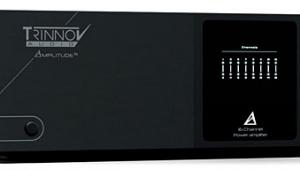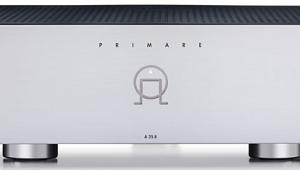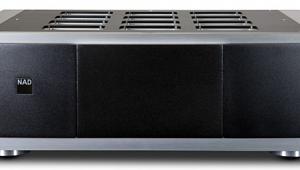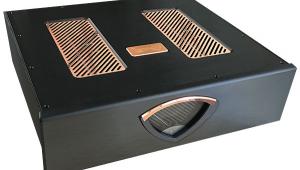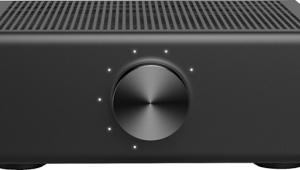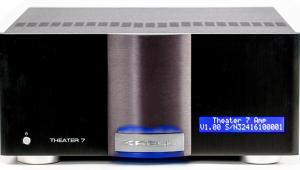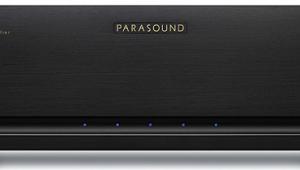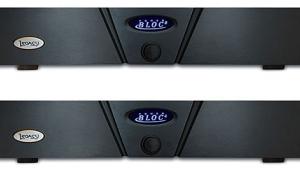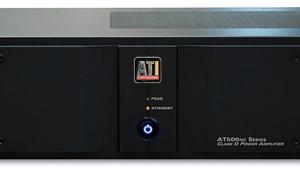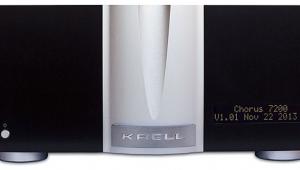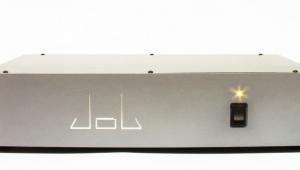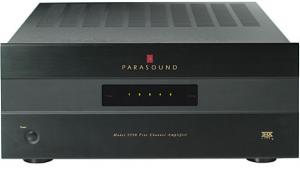Holy hell--that's dead silent. I was perusing through prior HT mag, er, I mean sound and vision reviews and only the Brytston 9B SST2 came close.
ATI AT6005 Amplifier Test Bench
Two channels driven continuously into 8-ohm loads:
0.1% distortion at 328.9 watts
1% distortion at 387.6 watts
Five channels driven continuously into 8-ohm loads:
0.1% distortion at 288.4 watts
1% distortion at 349.8 watts
Frequency response RCA input:
+0.02 dB at 10 Hz
+0.01 dB at 20 Hz
–0.11 dB at 20 kHz
–2.99 dB at 50 kHz
Frequency response XLR input:
+0.02 dB at 10 Hz
+0.01 dB at 20 Hz
–0.10 dB at 20 kHz
–2.98 dB at 50 kHz.
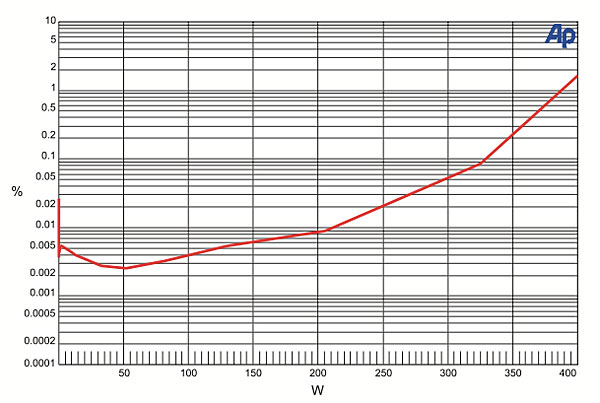
This graph shows that the AT6005’s left amplifier channel, with each of its dual power cords connected directly to two independent 20-Ampere branch circuits and two channels driving 8-ohm loads, reaches 0.1% distortion at 328.9 watts and 1% distortion at 387.6 watts. Into 4 ohms, the amplifier reaches 0.1% distortion at 456.1 watts and 1% distortion at 552.4 watts. With five channels driving 8-ohm loads, the amplifier reaches 0.1% distortion at 288.4 watts and 1% distortion at 349.8 watts.
An input level of 110.9 millivolts was required to produce an output of 2.83 volts into an 8-ohm load, indicating an overall gain of +28.16 decibels using the RCA input. When using the XLR input, a level of 114.5 millivolts was required to produce an output of 2.83 volts into an 8-ohm load, indicating an overall gain of +27.87 decibels.
THD+N from the amplifier was less than 0.009% at 1 kHz when driving 2.83 volts into an 8-ohm load using the RCA input. When using the XLR input under the same conditions, THD+N was less than 0.008%. Crosstalk at 1 kHz driving 2.83 volts into an 8-ohm load was –119.84 dB left (Channel 1) to right (Channel 5) and –115.96 dB right to left using the RCA inputs and –118.03 dB left-to-right and –116.95 dB right-to-left using the XLR inputs. The signal-to-noise ratio with an 8-ohm load from 10 Hz to 24 kHz with “A” weighting was –122.05 dBrA using the RCA input and –122.51 dBrA using the XLR input.—MJP
- Log in or register to post comments


This amp cannot even reach is claimed rated load with all channels driven unless its at 1% which is hardly audiophile. For the same money you could buy a Emotiva XPR-5 which is 400 WPC X 5, a Emotiva XPR-2 which is 500 WPC X 2. Both of these amps have more power and lower SN ratios and distortion. There is still enough money left over to buy Emotiva's flagship made in USA Prepro, the XMC-1. What a 7.1 system for just the price of the 5 channel ATI amp. No brainer to me...

Full power output for an amplifier like the AT6005 requires a high-power Variac (or in this case two Variacs) to insure line voltage remains at 120 volts. Otherwise the line voltage will sag and effect the measured output and THD.
Having seen many full power plots of our Signature amplifiers where supply voltage is properly maintained, the results reported here show reduced power output/increased THD due to sag in the line voltage.
When AC is properly maintained at 120 volts, these amps do achieve their rated THD and power output.
Jeff Hipps
Amplifier Technologies, Inc.

What do you mean? Isn't two seperate 20amp outlet enough?

For normal operation, even a single 20A circuit is sufficient.
It is only for performance verification and testing where the power supply voltage must be maintained at 120V that Variacs are necessary.
Jeff

How about those of us who rent and can't have a 120 line installed?

Dear great but...
In the vast majority of installations, the AT6002 will work perfectly with both cords plugged into a single 15A outlet--as you have in your apartment.
For example, we just ran our entire CES Auro-3D/Atmos demonstration which included 7000 watts of amplification on the two 15A circuits provided in our suite at the Venetian Hotel.
Jeff
